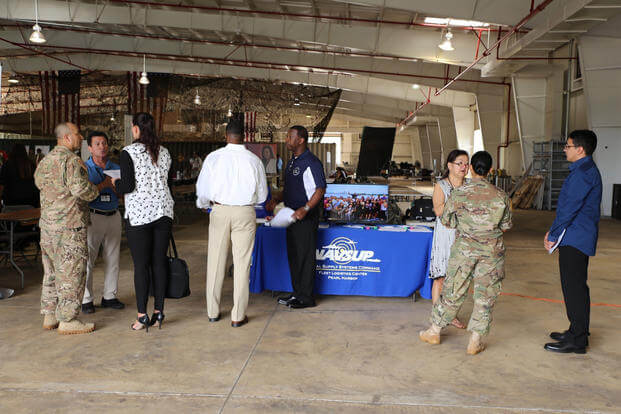If you're on the hunt for a job with the federal government, you should be aware of Veterans' Preference, which can give you preference over non-veterans for both getting a federal job and being retained during employee reductions. For more details, see the official overview below:
In recognition of the sacrifices made by those serving in the Armed Forces, Congress has enacted laws to prevent Veterans seeking Federal employment from being penalized because of time spent in military service. By law, veterans who are disabled or who served on active duty in the Armed Forces during certain specified periods or in military campaigns are generally entitled to preference over non-veterans both in Federal hiring practices and in retention during reductions in force.
Preference applies in hiring for many positions within the Federal competitive service, and provides a uniform method by which special consideration is given to qualified veterans. Veterans' Preference laws do not, however, guarantee veterans a job, nor do they give Veterans' Preference in internal agency actions such as promotion, transfer, reassignment and reinstatement.
What Is VETS' Role in Veterans' Preference?
The Veterans Employment Opportunity Act of 1998 provides that a veteran or other preference-eligible person who believes that his or her preference rights have been violated may file a written complaint with the U.S. Department of Labor's Veterans' Employment and Training Service (VETS).
Veterans who have been separated from the armed forces under honorable conditions after three years or more of active service may not be denied the opportunity to compete for vacant positions for which the agency making the announcement will accept applications from individuals outside its own workforce under merit promotion procedures. Preference would not apply in hiring under merit promotion procedures.
It is also important to note that the Office of Personnel Management (OPM) is responsible for enforcing and interpreting laws pertaining to Veterans' Preference. Upon receipt of the initial complaint, filed within 60 days of an alleged violation, VETS conducts an investigation to determine if the claimant's veterans' preference rights have been infringed upon or if a claimant was denied the opportunity to compete under merit promotion procedures where the agency is accepting applications from outside its workforce.
If VETS determines that the case has merit, every effort is made to resolve it. If a resolution is not reached in a timely manner, or in cases of appeal, the claimant may elect to elevate the complaint to the Merit Systems Protection Board (MSPB).
How Can a Veteran or Employer Determine Eligibility for Veterans' Preference?
The Department of Labor's Office of the Assistant Secretary for Policy (OASP) and VETS developed an online, interactive system called the Veterans' Preference Adviser to help veterans understand:
- Whether they are eligible to receive Veterans' Preference,
- The type of preference to which they may be entitled,
- The benefits associated with the preference, and
- The steps necessary to file a complaint due to the failure of a federal agency to provide those benefits.
The Adviser leads the inquirer through a series of questions to determine eligibility and provides specific information and instructions for filing a complaint. It is important to note that the tool is intended to be a first step and provide general information, but it does not offer definitive advice regarding an individual's Veterans' Preference entitlement.
Recent Expansion of Veterans' Preference
The Veterans Employment Opportunity Act made Veterans' Preference applicable to positions in additional government offices, including the Government Accounting Office, Office of the President, certain legislative and judicial positions, Reduction In Force (RIF) situations and in the Federal Aviation Administration (FAA).
In addition, the Defense Authorization Act of Fiscal Year 1998 extended Veterans' Preference to individuals who served on active duty during the Gulf War who are otherwise eligible, and to participants in Operation Joint Endeavor or Operation Joint Guard in the Republic of Bosnia and Herzegovina who were awarded the Armed Forces Expeditionary Medal (AFEM).
In March 2003, President George W. Bush signed Executive Order 13289 that established the Global War on Terrorism Expeditionary Medal. Receipt of the Expeditionary Medal qualifies a veteran for Veterans' Preference, provided the individual is otherwise eligible.
Want to Know More About the Military?
Be sure to get the latest news about the U.S. military, as well as critical info about how to join and all the benefits of service. Subscribe to Military.com and receive customized updates delivered straight to your inbox.











